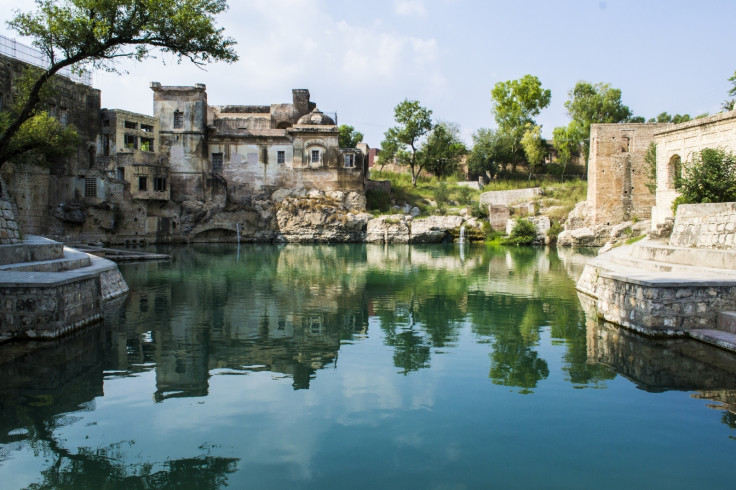Legendary Hindu temple complex in Pakistan faces ruin as factories tap into sacred pond
The country's Supreme Court has called on the Punjab government to take immediate action to refill the Katas Raj Temple pond and preserve the site.

Pakistan's Supreme Court has stepped in to preserve one of the country's most iconic Hindu structures which is under threat from industrialisation. On Thursday (23 November), Chief Justice Saqib Nisar criticised the Punjab provincial government for not taking immediate action to protect the legendary Katas Raj Temple complex.
The Katas Raj Temples are a series of sacred structures which were built from the 7<sup>th century CE onward. The temples are connected to one another by walkways with a pond at the center. Located in the Potohar Plateau, the site is of special significance to Pakistan's Hindu minority and is mentioned in the epic, the Mahabharata, and the Puranas — Hindu religious texts.
According to Hindu mythology, the pond was created from the teardrops of god Shiva, which fell to the ground as he wandered the Earth mourning the death of his wife Sati. Another legend states that the deity Krishna laid the foundation of the temple, and established a hand-made shivaling (an iconic representation of god Shiva) in it.
Recent reports suggested that the lake is now under threat of drying up as nearby cement factories were drawing out most of its water. "Katas temple is not just a sacred place for the Hindu community, but also a part of our cultural and national heritage," Judge Nisar said, according to The Hindu newspaper. "We have to find a solution as to how water can be provided. If we need to close down tube-wells or halt the water consumption of the factories, we will do it."
According to a report by the Punjab government, industries and settlements in the area have been making excessive use of bore wells, which in turn, has dried up the aquifer which feeds the pond.
The chief justice called on the authorities to investigate the problem and has issued a notice to the factories responsible. "The pond should be filled in a week even if water has to be carried in water-skins to fill it," he added.
The Katas Raj temples have faced severe ruin in the past, with most of the murals inside the holy structures having faded away with time. It was only in 2006, following a visit from India's former deputy prime minister Lal Krishna Advani, that the Pakistan government announced plans to restore the heritage site.
Statues of Hindu deities costing Rs 51m ($7.9m, £5.9m) were reportedly placed in the seven buildings and restoration work was done on the carvings and murals.




















